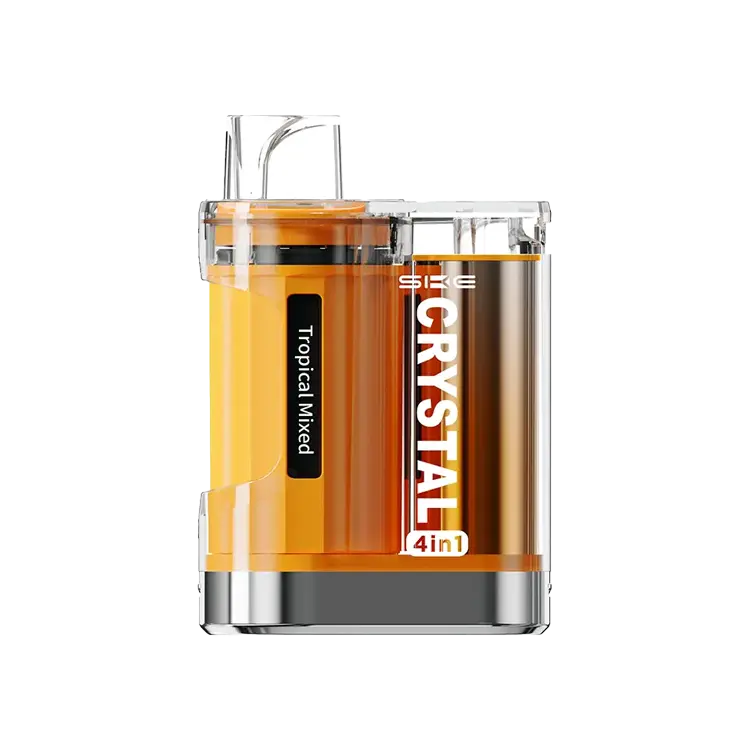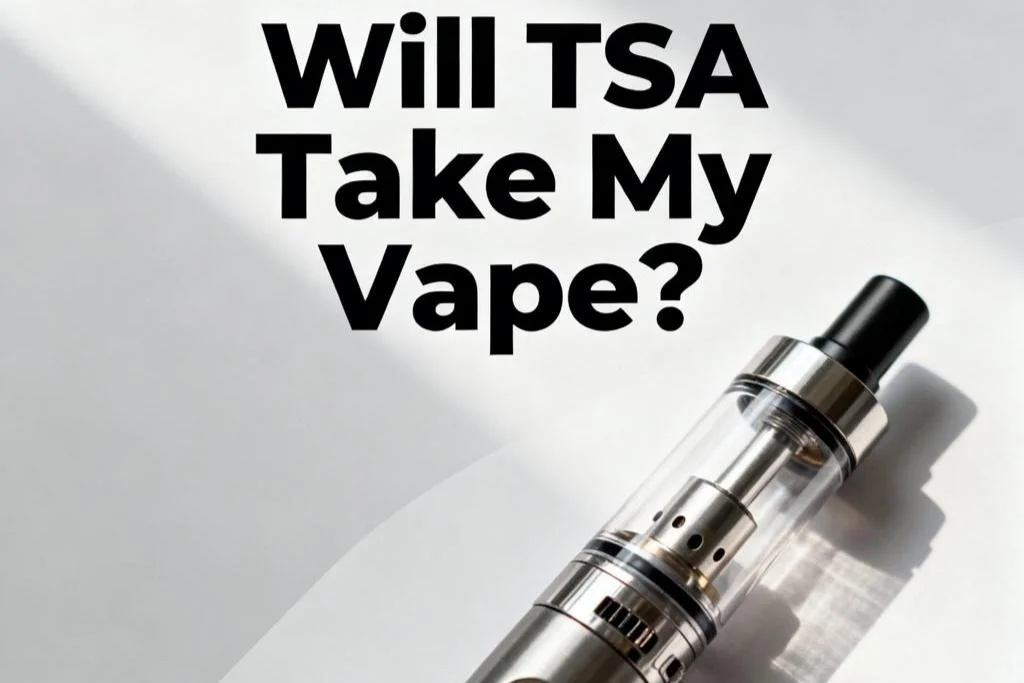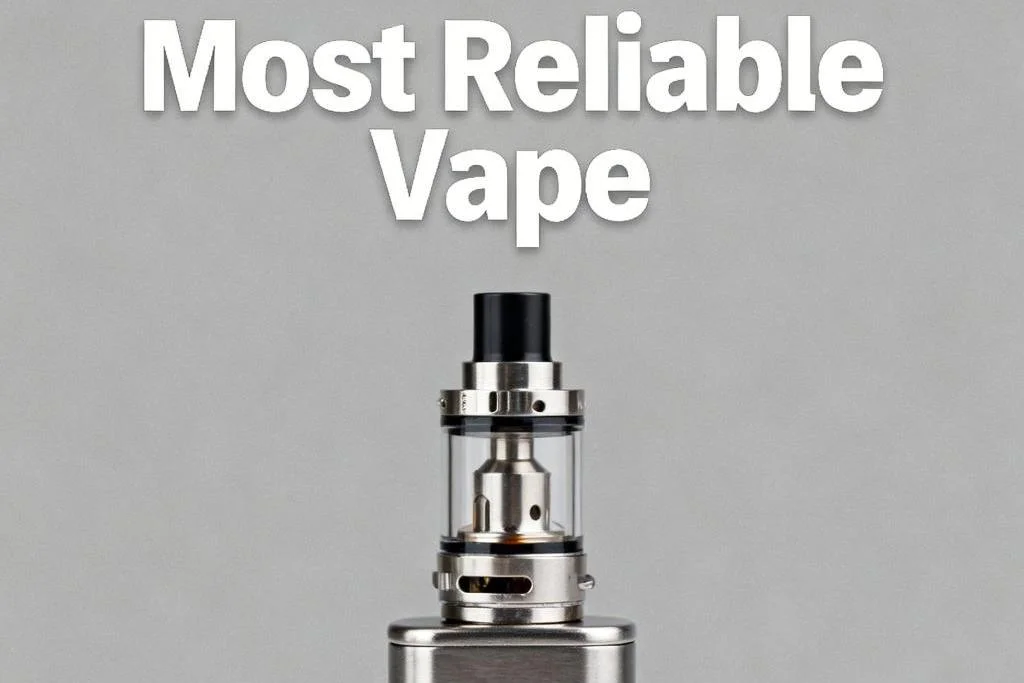DOES VAPING CAUSE BLOATING?
As vaping continues to grow in popularity, many users are reporting unexpected side effects—including bloating. If you’ve ever felt unusually gassy, swollen, or uncomfortable after using a vape, you're not alone. But does vaping actually cause bloating, or is something else to blame?
This guide breaks down the potential connection between vaping and bloating, why it might happen, and what you can do about it.
Can Vaping Cause Bloating?
Yes, vaping can potentially lead to bloating in some users. While it’s not a universal experience, certain ingredients, habits, and behaviors associated with vaping may contribute to gas buildup in the stomach and intestines. Here's how vaping may lead to bloating
- Swallowing Air (Aerophagia): Inhaling too quickly or deeply from a vape can cause you to swallow air without realizing it. This excess air can lead to bloating and gas retention.
- Propylene Glycol (PG): One of the primary ingredients in e-liquids, PG, may cause gastrointestinal discomfort or bloating in sensitive individuals. It’s known to draw water into the intestines, which could contribute to a feeling of fullness or swelling.
- Nicotine’s Effects on Digestion: Nicotine can speed up or slow down gut motility depending on the dose, which may disrupt normal digestion and result in gas or bloating.
- Flavored E-Liquids: Some artificial sweeteners and flavorings used in vape juices may cause digestive issues similar to those found in sugar-free foods, such as bloating and abdominal discomfort.
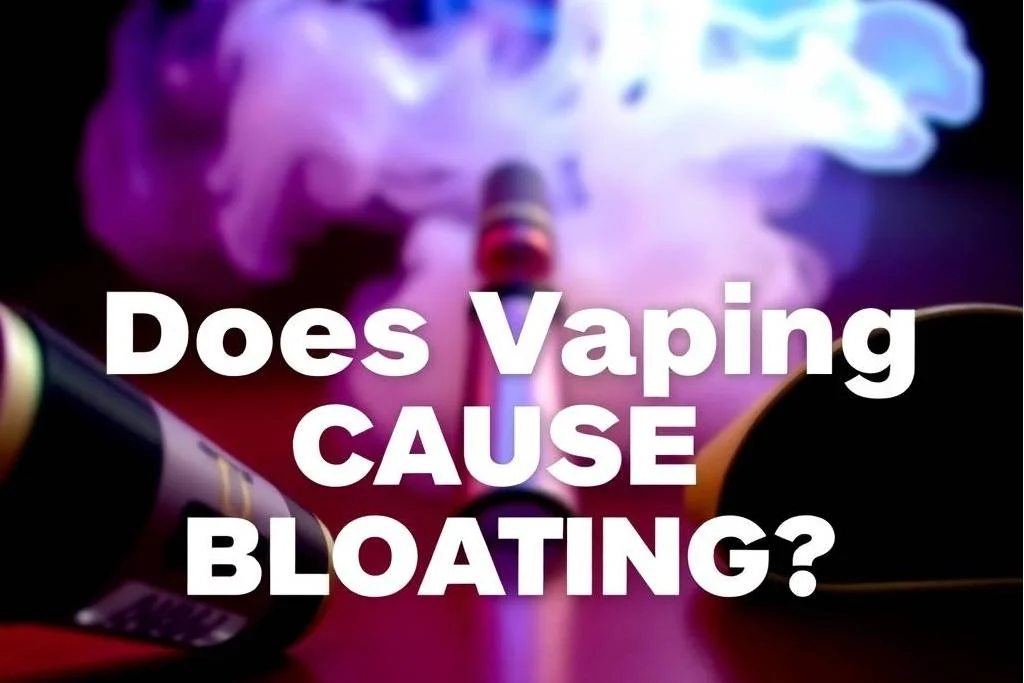
Who Is Most Likely to Experience Bloating from Vaping?
Bloating isn’t a guaranteed side effect, but the following groups may be more susceptible:
- New vapers who are still adjusting to inhaling vapor
- Users with sensitive stomachs or IBS
- People switching from smoking to vaping, as their gut microbiome adjusts
- Those using high-PG or high-nicotine e-liquids
Is Bloating from Vaping Dangerous?
Occasional bloating isn’t typically dangerous, but persistent or severe bloating could signal an underlying sensitivity to certain vape ingredients or even a gastrointestinal issue unrelated to vaping.
If bloating is accompanied by nausea, vomiting, or significant abdominal pain, it’s important to seek medical advice.
How to Reduce Bloating While Vaping
If you suspect vaping is causing your bloating, try the following tips:
- Slow down your inhale: Avoid rapid or deep inhales to reduce the amount of swallowed air.
- Switch to lower-PG e-liquids: Try vape juices with a higher VG (vegetable glycerin) ratio, which may be gentler on your stomach.
- Stay hydrated: Drinking plenty of water helps your digestive system process any potential irritants.
- Use lower nicotine strengths: High nicotine levels can irritate the gut. Lowering your dose may help ease symptoms.
- Avoid artificial sweeteners: Choose more natural flavors if sweeteners are causing digestive discomfort.
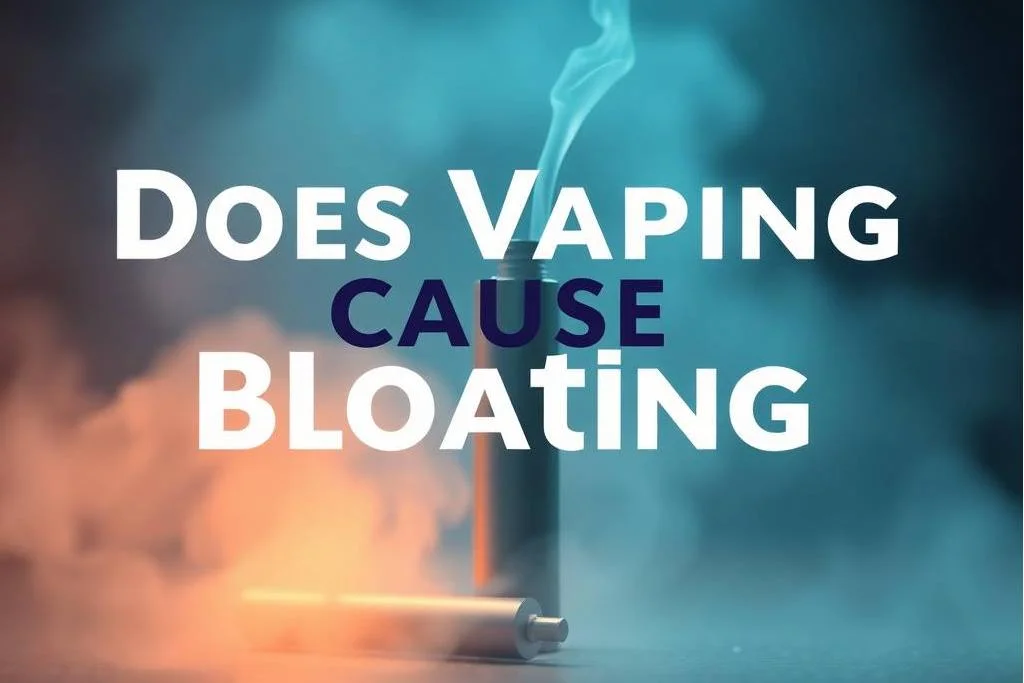
When to See a Doctor
If symptoms persist after making adjustments, it’s wise to consult a healthcare provider. While vaping may be a contributing factor, chronic bloating could stem from unrelated digestive issues such as food intolerances, IBS, or acid reflux.
Conclusion
The ingredients in vape juice, the way you inhale, and your body’s unique response all play a role. While not everyone will experience bloating from vaping, it’s a side effect worth recognizing—especially if it affects your comfort or quality of life. By making simple changes to your vaping habits, you may be able to reduce or eliminate bloating altogether. If the problem continues, don’t hesitate to seek medical guidance to rule out other causes.
FAQs
1. Why do I feel bloated after vaping?
Bloating after vaping is often caused by swallowing air (aerophagia) while inhaling vapor. In addition, ingredients like propylene glycol and certain artificial sweeteners in e-liquids can irritate the digestive tract or draw excess water into the intestines, contributing to a bloated sensation.
2. Can nicotine in vapes affect digestion or cause gas?
Yes, nicotine can impact the digestive system. It may alter gut motility—either speeding it up or slowing it down—leading to gas, bloating, or stomach cramps. High doses of nicotine, especially in sensitive users, are more likely to trigger gastrointestinal symptoms.
3. Does vaping on an empty stomach cause bloating?
Vaping on an empty stomach can sometimes cause bloating or nausea, particularly for new users. Without food to buffer the effects, the nicotine and ingredients in the vapor may irritate the stomach lining or disrupt digestion, leading to temporary discomfort.
4. Are certain vape juices more likely to cause bloating?
Yes. E-liquids with a high PG (propylene glycol) ratio or those containing artificial sweeteners and complex flavorings may cause bloating in some users. Switching to a high-VG (vegetable glycerin) formula or simpler flavors may help reduce symptoms.
5. How can I stop feeling bloated from vaping?
To reduce bloating from vaping:
- Inhale more slowly to avoid swallowing air.
- Choose vape juices with less PG or artificial additives.
- Use lower nicotine strengths.
- Stay hydrated throughout the day.
- Avoid vaping immediately before or after meals if it triggers discomfort.













